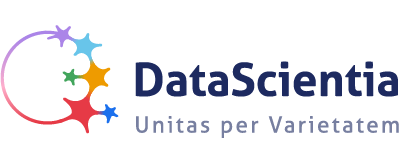
Overview
COURSE OBJECTIVES AND OUTCOMES
Artificial intelligence (AI) is a key driver of the Fourth Industrial Revolution, transforming all sectors of society, from business and health to education. Targeted or Restricted AI (Narrow AI), applications aimed at carrying out very specific tasks, have been evolving more and more in recent decades. From the use of technologies such as Siri or Alexa which help us make a phone call, or the use of the Google search engine which returns us the information we requested in a few seconds or even when we discover photos on social networks where we use targeted applications AI. In this course, we utilize the participants’ familiarity with such applications, in order to explore the technical, but also social and ethical aspects, of the modern AI system. Narrow AI differs fundamentally from the General AI (e.g., humanlike agents and even humanoid robots) that are often portrayed in science fiction novels and movies, which tends to influence the public’s beliefs about what AI is and where AI research is headed in the near future. In fact, General AI is – according to most scientists – neither possible nor desirable. Thus, this course focuses on Narrow AI applications, which can augment human capabilities, and which are playing an increasing role in the workplace. The overall objective of the learning unit is to help participants appreciate what AI actually is, as well as to understand the basic elements of AI technologies, and how they are developed.
COURSE DESCRIPTION
Learners will familiarize themselves with the fundamental definitions and concepts around AI, but also the widespread methods used in the creation of systems. In particular, an introduction to data-driven AI, based on machine learning, is provided. The role of personal data in the AI ecosystem – provided to companies via the use of services such as search engines and social media – will be discussed. In addition to examining the fundamental concepts surrounding the technical aspects of Narrow AI, we will also examine its widespread use’s ethical and social implications. Participants will therefore learn to analyze the functions of “everyday” AI applications and will be able to understand the potential risks of these technologies, in an effort to raise awareness, encouraging them to critically evaluate them. In short, the ultimate goal of this course is to empower participants to use AI applications – particularly those that are playing an increasing role in everyday life – in an optimal way. The course will cover the following topics:
-
- Machine Learning and Big Data
- Natural Language Processing
- Personalization
- Ethical issues in AI applications
PREREQUISITES
The course is designed to be introductory. Students from all types of backgrounds are welcome!
COURSE MODALITY
The course will be taught in English. The course will be fully online, including the evaluation tests. The lecture hours will be used to answer the students’ questions and to collect feedback
The course will be fully online via Zoom, using distance learning methods. The first introductory lesson (Tuesday, 23rd of April, 17.00) will provide an overview of the course and its logistics. The lectures will occur following the scheduling indicated in the Calendar and Material section. The course material includes slides, videos, quizzes, assignments, and additional resources. All lessons will be interactive, providing students with the opportunity to ask questions and delve deeper into topics and interests. Each week will be provided with the following learning materials:
- The learning objectives for the unit
- The reading materials
- A video presentation
- A quiz that you can use for self-evaluation
Please study the materials before attending the class meeting so we can use our time together for interactive activities and discussion. Attendance at the meetings is mandatory, although you may, of course, watch the video presentations at any time that is convenient to you.
EXAM
The course evaluation is either pass or failed and it will be based on attendance and assignment fulfillment. Attendance is mandatory for a minimum of 70% of the hours of frontal teaching and is strongly suggested given that this is a hands-on lab course. In addition to attendance, the final evaluation will be based on the completion of the activities proposed during the course.
CALENDAR AND MATERIAL
The course runs from April 23th, 2024 till May 28th, 2024 with the following schedule
- Tuesday, 17:00-19:00, Online
Course Features
- Lecture 1
- Quiz 0
- Duration 48 hours
- Skill level Beginner
- Language English
- Students 274
- Assessments Yes
Curriculum
Instructor
Reviews
Target audiences
- The course is designed to be introductory. Students from all types of backgrounds are welcome!


